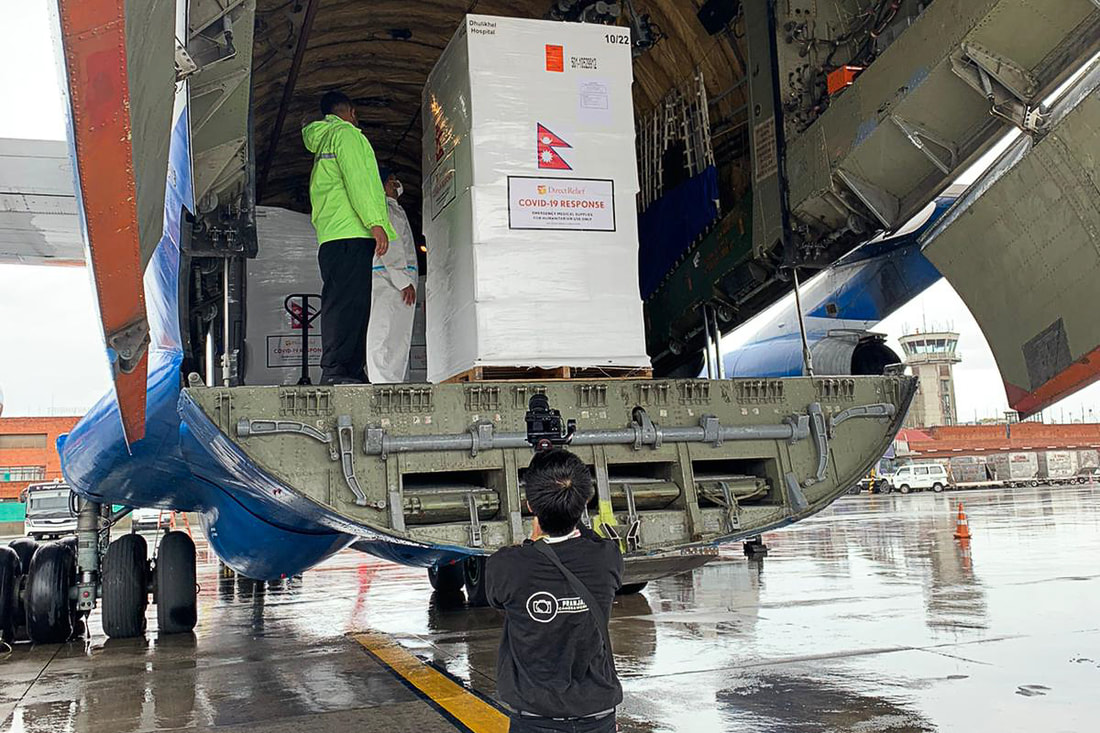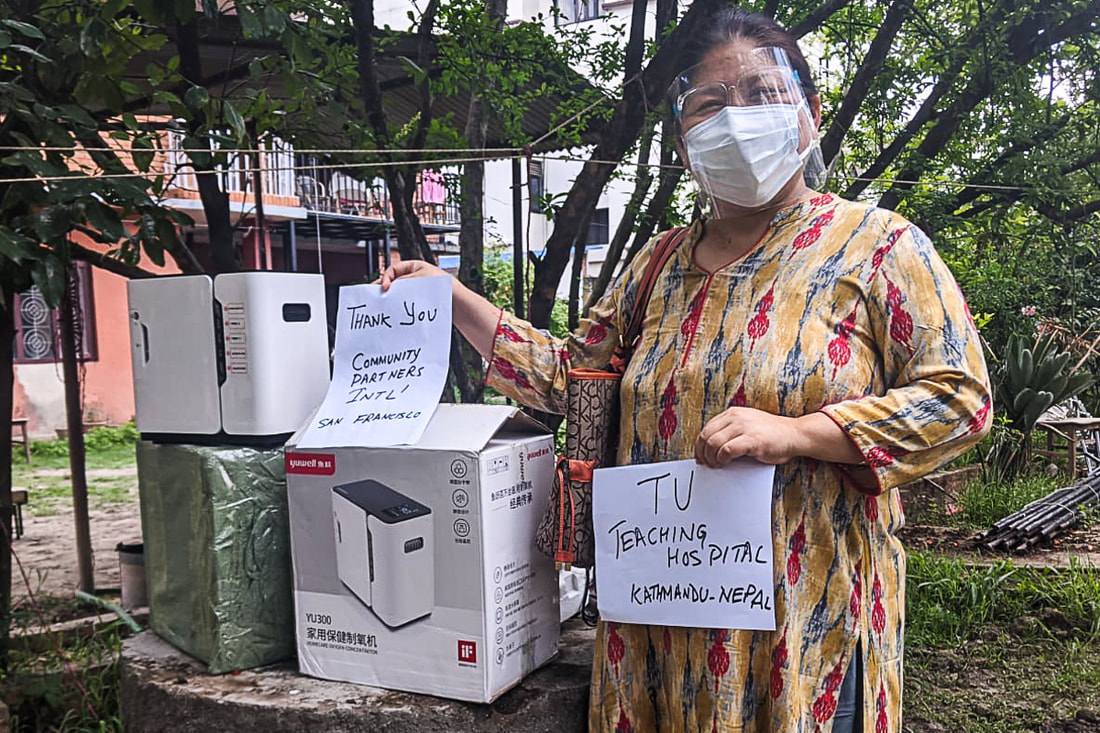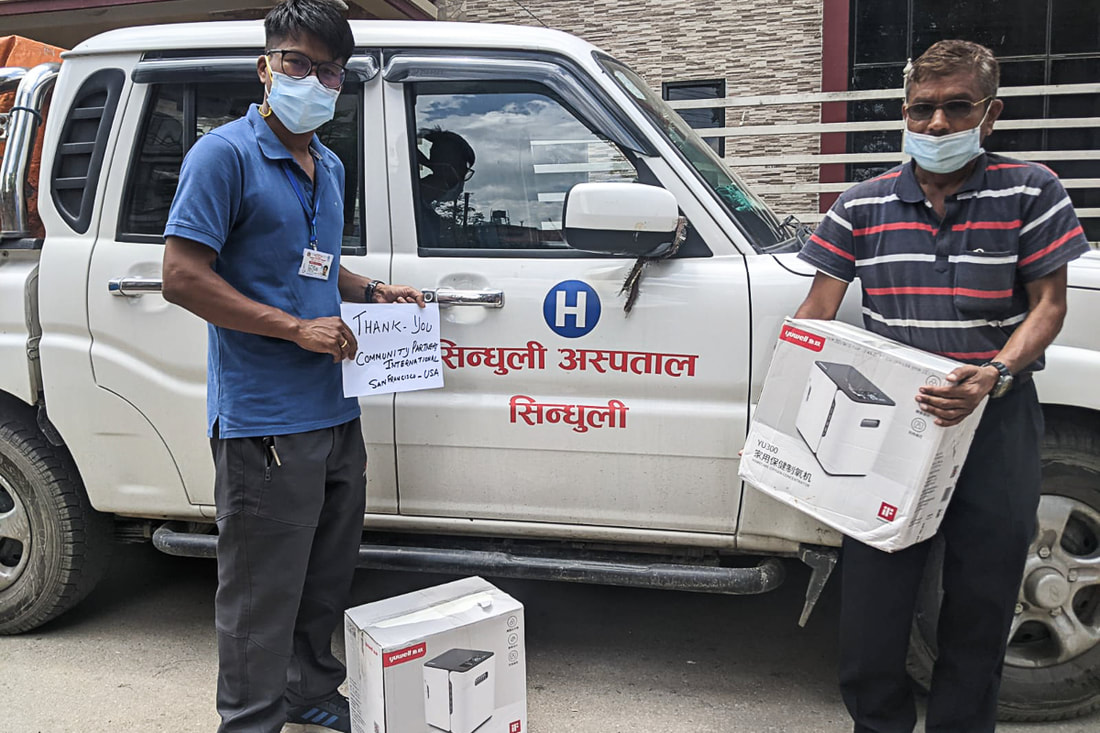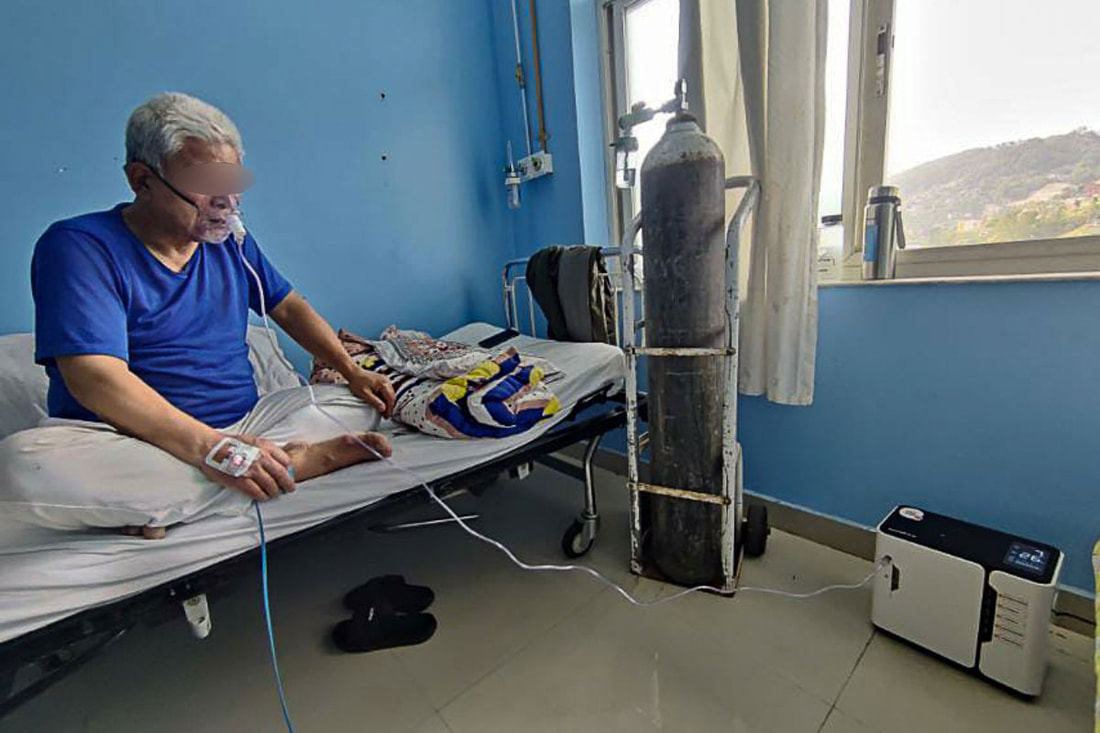|
On May 29, 2021, Community Partners International’s first shipment of 130 high-flow oxygen concentrators to Nepal touched down at Tribhuvan Airport in Kathmandu. Sourced in the United States, and airlifted with assistance from Direct Relief, the concentrators will help the people of Nepal in their desperate struggle with the COVID-19 pandemic.
Nepal is experiencing a catastrophic spike in COVID-19. During May, confirmed cases reached nearly 9,000 per day. However, this tells only part of the story. At the time of writing, the health system can carry out just 20,000 tests per day. The 40%- 50% test positivity rate indicates that there are many thousands of cases in the population that are not being confirmed by testing.
The latest spike has been partly attributed to spillover from the COVID-19 epidemic in neighboring India. Current hotspots include the three districts of the Kathmandu valley and adjoining districts and gateways to the Indian border, but more than half of Nepal’s districts are now reporting high caseloads. With less than 5% of the population vaccinated, the people of Nepal are deeply vulnerable. The impact on the health system is devastating. Health facilities are overwhelmed and some are turning people away due to lack of bed space. There are widespread shortages of critical care facilities, oxygen supplies, medicines, test kits and personal protective equipment. In the midst of this dire humanitarian crisis, Community Partners International has mobilized. As well as the 130 concentrators delivered on Sunday, the organization is sourcing additional units locally in Nepal to meet urgent needs. Oxygen concentrators have many advantages in this context. Typically, they require no external oxygen supply beyond ambient air - they draw in the air, concentrate the oxygen, and deliver it to the patient via a breathing mask or tube. So, with just an electricity supply, one concentrator can provide lifesaving oxygen to as many as 60 people in a month. Secondly, many models of oxygen concentrators are portable, easy to operate, and well suited to low-resource contexts. They can be used flexibly within health facilities to supplement other oxygen sources. They can also be provided at home to patients in recovery, or with moderate symptoms that wouldn’t otherwise require hospitalization. This helps free up vital bed spaces for more severe cases needing urgent care.
Community Partners International is distributing the oxygen concentrators to health facilities approved to provide COVID-19 care by Nepal’s Ministry of Health and Population. The organization is focusing on facilities that are serving vulnerable rural and urban communities in COVID-19 hotspots.
As of June 1, 2021, 21 oxygen concentrators have been distributed to 10 health facilities across Nepal and Community Partners International is racing to distribute the additional concentrators where needs are greatest.
The units are already in use. Pramita’s father was admitted to Dhulikhel Hospital, about 30km southeast of Kathmandu, in May with COVID-19. “His oxygen levels were dropping and I was beginning to panic because of the limited oxygen supply at the hospital,” explained Pramita. “It was a huge relief when he received the oxygen concentrator and could breathe more easily. The hospital staff showed me how to operate it so I can help him. I’ve also been showing other patients in the ward how to use their concentrators. I am so thankful for this assistance. It is helping to save lives."
Bjiay Niraula, Community Partners International’s COVID-19 Response Lead in Nepal, outlines the organization’s approach. "We are working closely with Nepal’s Ministry of Health and Population, the Nepal Institute of Development Studies and other partners like the MIT Group Foundation in Melbourne, Australia, to identify COVID-19 hotspots and share that information with all organizations working on the response effort to support coordinated action," explains Bijay.
"Health facilities submit requests for support to us, providing information about patient flow, staffing levels and oxygen supplies," Bijay continues. "Using this information, we distribute the oxygen concentrators on the basis of need. We monitor the status of health facilities and redeploy the concentrators when they are no longer needed in a particular facility." "We are also planning to provide technical support, maintenance and repair services for oxygen concentrators to ensure that they are used optimally. We are preparing for the potential next wave of COVID-19 in Nepal so that the situation can be managed before it gets out of hand." To support Community Partners International’s COVID-19 response in Nepal and other countries in South Asia, please:
Donate
Our thanks to the Kitten Nursery Club of Los Angeles and Smarica Poudyal for their support in fundraising for this initiative.
Comments are closed.
|
AuthorCPI Admin Archives
July 2024
Categories
All
|
|
|
COMMUNITY PARTNERS INTERNATIONAL
580 California St Fl 16, Ste 1658, San Francisco, CA 94104-1068, USA [email protected] +1 510 225 9676 We are a registered nonprofit 501(c)(3) Public Charity. TAX ID 94-3375666 |
©
Community Partners International





 RSS Feed
RSS Feed
